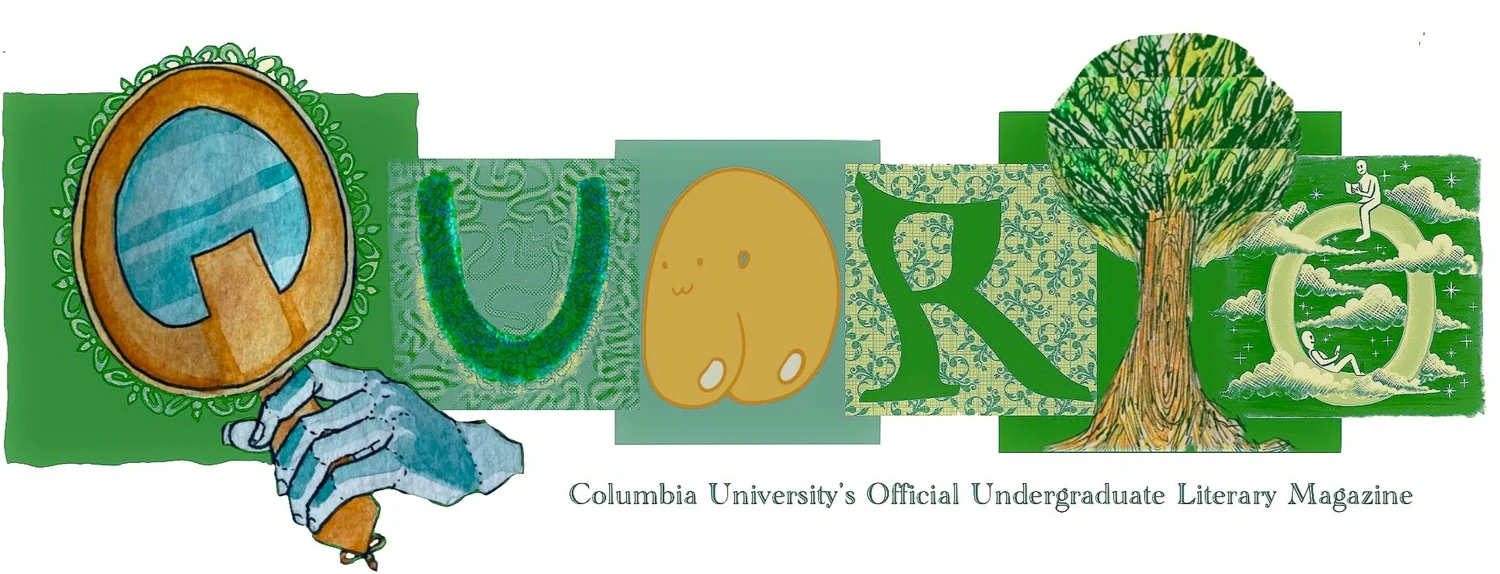I am thinking of cataclysm today. Violent overturnings—of justice, of peace, of literal earth. As I sit in the cradle of the United States, the Midwest, fires cover an entire continent ten thousand miles away. After reading the news about fleeing families, screeching wildlife, and breaking earth, I realized that despite being so physically separate from the trauma that Australians are faced with, I am still connected to this trauma by liability. My choices, my money, the society to which I contribute have fueled these flames. This realization, of coexistent separation and culpability, left me feeling completely helpless as a writer. I could only remember the power of language being to attack, criticize, and elicit change through a form of rupture; I doubted language’s ability to heal matter, both physical and metaphysical, which has already ruptured.
Yet, here I am, writing this, to say that these doubts, as most are, are far from true. At the beginning of the school year, Anelise Chen issued a statement as she took on the role of Interim Director of Undergraduate Creative Writing Studies. She said, “Undeniably, we are living in times full of pressing and dire issues. As writers, we know that there is no medium more powerful than the word to bring people together or push people away. It is up to us, now, to discover how we might wield this power. How might words be mobilized to transmit our beliefs, or cast light in darkness, or tell a more nuanced story, or share in another's suffering? Let us go forward with a commitment to empower one another and aspire toward learning that is both generative and inspiring.”
As Chen said, writing not only has the power to push away, but it also has the power to pull together. Language, as the medium of communication, is the ultimate connector. It not only transmits messages from one being to another, but also transmits feelings, visions, and spirit—connecting us to each other, to the world, and to our core values through bonds that are, to quote Audre Lorde, not surface, but deep. This deep connection is the antidote of rupture: it is language’s power to heal.
And healing the broken matter of the earth means healing our connection with it—shifting an anthropocentric view point by seeing our own spirits, our souls, our identities woven into the fabric of plants, animals, soil, and oceans. It means allowing ourselves to empathize with the planet and grieve for its loss and wounds. Such connection is what will elicit impassioned change, heal our own ecological anxiety, and contribute to the literal healing of a breaking earth.
In fact, this role of language in healing the earth has been verified by scientists. Recent scholarship has found that linguistic diversity is positively correlated with biodiversity. Scholars propose that the reason for this correlation is due to reverence and connection to the natural world: The cultures that have been preserving linguistic diversity and biological diversity for ages tend to be cultures that do not see themselves as separate from the ecosystems in which they live. Language is thus inextricably linked to building a connection with landscape—and connection to a landscape is thus inextricably linked to conserving that landscape.
As emerging poets, authors, and editors, coming into these times of cataclysm, we have a responsibility to not only preserve and uplift dwindling linguistic diversity, but also use our own linguistic creations as a healing force of connection for our earth and the beings on it. With this task at hand, I find myself shedding the feeling of helplessness and emerging into a sense of empowerment and hope. I hope you do too.
Mitali Khanna Sharma is Quarto’s Head of Design. She is passionate about socio-environmental justice and finds immense joy in earthworms and moonlight. This is her second year on staff.

